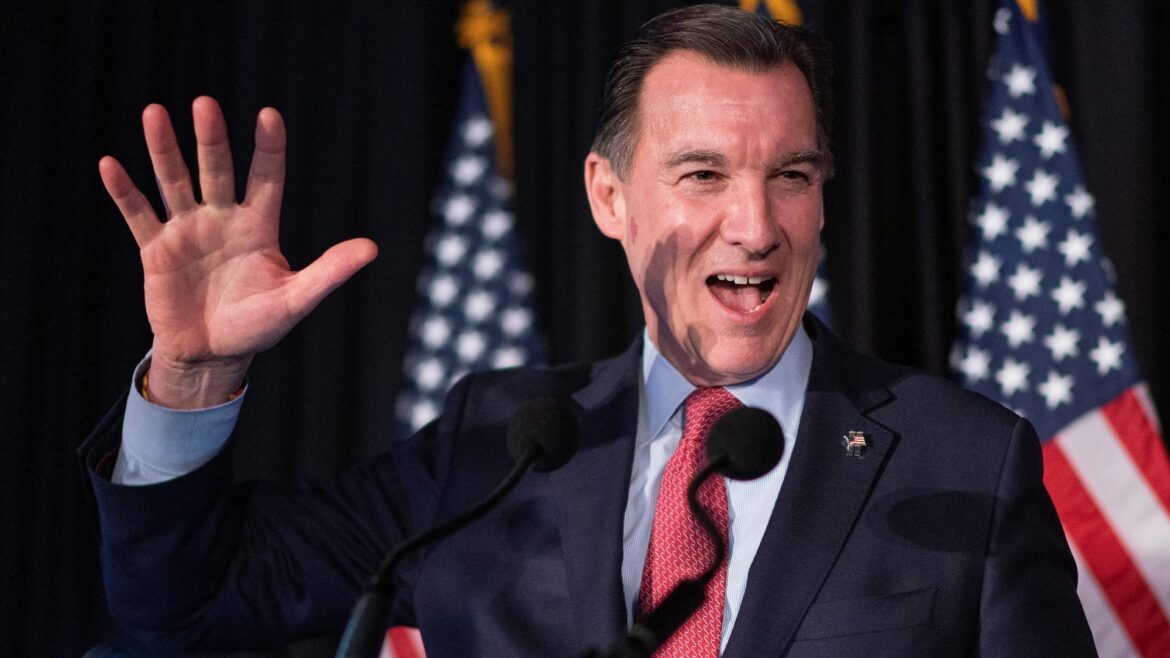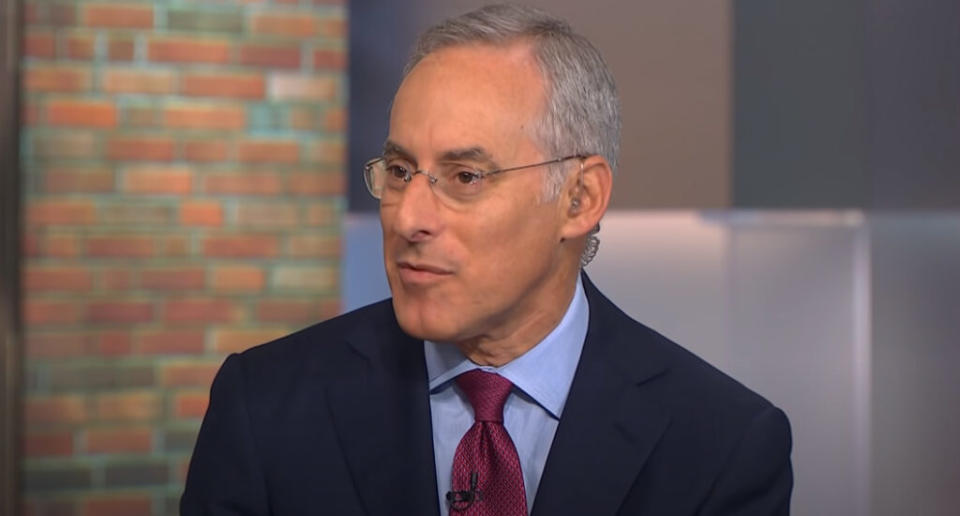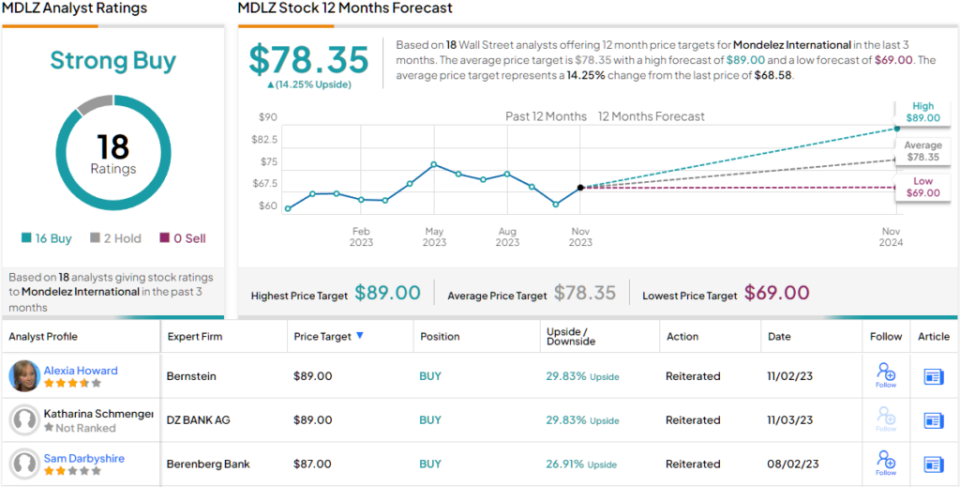
U.S. healthcare ETFs are losing momentum at the start of the second quarter. Here’s where strategists see them going as a Biden-Trump election rematch looms.
Source link
election
New York Democrat Tom Suozzi wins special House election, cuts slim GOP majority
Democratic congressional candidate for New York’s 3rd district, Tom Suozzi, delivers his victory speech during his election night party, following a special election to fill the vacancy created by Republican George Santos’ ouster from Congress, in Woodbury, New York, U.S., February 13, 2024.
Eduardo Munoz | Reuters
Democrat Tom Suozzi has won the New York special election to replace expelled former Rep. George Santos, NBC News projects, flipping a red seat blue and further narrowing Republicans’ slim House majority.
The seat representing New York’s 3rd Congressional District had been vacant since Santos was ousted from Congress late last year under a cloud of scandals and criminal charges.
Suozzi, who previously represented the district, is projected to defeat Republican Mazi Pilip.
Surveys conducted before Election Day showed a tight race between Suozzi and Pilip in the district, which covers parts of Long Island and Queens. But NBC and other outlets projected the outcome of the race less than 90 minutes after polls closed.
“Let’s send a message to our friends running the Congress these days: Stop running around for Trump, and start running the country,” Suozzi said in a victory speech.
As Suozzi took the stage, a pro-Palestinian protester confronted him and screamed, “You support genocide!” The protester was swiftly taken of the stage.
The special election, conducted in spite of a major snowstorm that barreled through the northeast Tuesday morning, could have a major impact on the balance of power in Congress.
Suozzi could be sworn into Congress within days, raising the number of House Democrats to 213 — a relative hair’s breadth from the chamber’s 219-member GOP majority. That means that if the full House is voting, Republicans can only allow two defectors to break ranks and still pass legislation along party lines.
Both parties poured millions of dollars into the contest, but Democrats have spent twice as much as Republicans on advertising — $13 million in total over just 10 weeks, according to The New York Times.
Congressional candidate for New York’s 3rd District Mazi Melesa Pilip campaigns with Brandon Judd, President of the National Border Patrol Council, on February 7, 2024, opposite Creedmoor migrant center in the Queens borough of New York City.
Adam Gray | Getty Images
Pilip, a Nassau County legislator, tried to make the race a referendum on immigration, a galvanizing issue for Republicans across the country, and one that has rankled New York leaders in recent months.
But Suozzi took a harder line on immigration than many of his fellow Democrats running for Congress, and he countered Pilip’s attacks by blasting her as an extremist for opposing a bipartisan border deal.
Democrats throughout the race sought to tie Pilip to Santos, who had been shunned by his own constituents long before he was booted from his seat.
Some observers have been tempted to view Tuesday’s matchup as a bellwether for the November general election, believing a concrete result in a competitive race offers more clarity about the political landscape than a series of ever-changing polls.
But special election turnout shares little DNA with the general electorate, according to a New York Times analysis earlier this month. Special election voters tend to be more engaged, and more partisan, than those in general elections, the Times found.
That hasn’t stopped Republicans and Democrats alike from holding up Suozzi’s win as a warning sign for the coming election, including the likely rematch of President Joe Biden and former President Donald Trump.
“Let’s just say the quiet part out loud. Donald Trump continues to be a huge weight against Republican candidates,” said the presidential campaign of former United Nations ambassador Nikki Haley, Trump’s last GOP primary challenger.
Biden’s reelection campaign, meanwhile, declared, “Donald Trump lost again tonight. When Republicans run on Trump’s extreme agenda – even in a Republican-held seat – voters reject them.”
Suozzi won’t have too long to celebrate his victory: He will have to run again in November to be elected to a full two-year term. Both Suozzi and Pilip have already committed to campaigning in the general, no matter who wins on Tuesday.
In addition to fighting each other, Suozzi and Pilip had to contend with another challenge: a major storm that began overnight and has already dumped multiple inches of snow on New York City.
A snowplow clears Main Street as snow falls in Tappan, New York, on February 10, 2024.
Kena Betancur | AFP | Getty Images
NBC News reported low turnout at several polling locations in the morning, including some identified as “popular” sites by the Nassau County Clerk’s Office. Just 199 voters cast ballots at the Syosset site between 6 a.m. and 11:25 a.m., for instance, and volunteers there blamed the storm for the lower-than-expected numbers.
Read more CNBC politics coverage
Last year, a federal grand jury in Long Island charged Santos with an array of crimes, including spending campaign contributions on personal luxury goods and lying on his House financial disclosure forms.
He pleaded not guilty to those charges and another raft of allegations that was added to his case five months later.
Santos had served just 11 months in Congress by the time he was expelled. His criminal trial is set for mid-September.
Don’t miss these stories from CNBC PRO:
Taiwan officials launch inquiry into crypto betting on election results: Report
With the upcoming Taiwan presidential on Jan. 13, 2024, residents of Taiwan have been reportedly warned against using cryptocurrency betting platforms to wager on the election outcome. This advice comes amid an ongoing investigation, with several individuals already called for questioning.
According to a recent local report, a number of Taiwanese citizens have participated in the decentralized betting platform Polymarket to place bets on the upcoming presidential election.
“The community reported that several individuals have been summoned for investigation by prosecutors and investigators for participating in Polymarket bets,” the report stated.

However, participating in election-related gambling activities in Taiwan is against the law. It was noted that it potentially violates Article 88-1 of the Election and Recall Act.
The report added there is a potential for a six-month imprisonment, detention or a fine of up to 100,000 New Taiwan dollars, which is approximately $3,188.
Related: Crypto gambling site Stake sees $41M withdrawn in confirmed hack
In 2022, Polymarkets faced regulatory challenges in the United States.
Headquartered in New York, the Commodity Futures Trading Commission (CFTC) initiated legal proceedings against the platform in January 2022.
The CFTC claimed that the platform had been operating an “illegal unregistered or non-designated facility” since June 2020.
However, during the 2020 U.S. election, Polymarket saw significant trades take place on its platform, posting a new volume record of more than $10 million.
Magazine: Terrorism & Israel-Gaza war weaponized to destroy crypto

A study from two Europe-based nonprofits has found that Microsoft’s artificial intelligence (AI) Bing chatbot, now rebranded as Copilot, produces misleading results on election information and misquotes its sources.
The study was released by AI Forensics and AlgorithmWatch on Dec. 15 and found that Bing’s AI chatbot gave wrong answers 30% of the time to basic questions regarding political elections in Germany and Switzerland. Inaccurate answers were on candidate information, polls, scandals and voting.
It also produced inaccurate responses to questions about the 2024 presidential elections in the United States.
Bing’s AI chatbot was used in the study because it was one of the first AI chatbots to include sources in its answers, and the study said that the inaccuracies are not limited to Bing. They reportedly conducted preliminary tests on ChatGPT-4 and also found discrepancies.
The nonprofits clarified that the false information has not influenced the outcome of elections, though it could contribute to public confusion and misinformation.
“As generative AI becomes more widespread, this could affect one of the cornerstones of democracy: the access to reliable and transparent public information.”
Additionally, the study found that the safeguards built into the AI chatbot were “unevenly” distributed and caused it to provide evasive answers 40% of the time.
Related: Even the Pope has something to say about artificial intelligence
According to a Wall Street Journal report on the topic, Microsoft responded to the findings and said it plans to correct the issues before the U.S. 2024 presidential elections. A Microsoft spokesperson encouraged users to always check for accuracy in the information obtained from AI chatbots.
Earlier this year in October, senators in the U.S. proposed a bill that would reprimand creators of unauthorized AI replicas of actual humans — living or dead.
In November, Meta, the parent company of Facebook and Instagram, introduced a mandate that banned the usage of generative AI ad creation tools for political advertisers as a precaution for the upcoming elections.
Magazine: ‘AI has killed the industry’: EasyTranslate boss on adapting to change
Goldman Sachs Says Utilities and Consumer Staples Stocks Are Set to Outperform as the Presidential Election Approaches — Here Are 2 Names the Banking Giant Likes
Almost exactly a year from now, Americans will cast their ballots and vote for a President, doing so for the 60th time since 1788. The election process will kick off in earnest on January 15th when the Iowa Republican caucuses mark the official commencement of primary season.
Right on time, says Goldman Sachs’ Chief U.S. Equity Strategist David Kostin, investors have started asking how the 2024 election will impact the stock market.
Going by the history books, it’s not going to be a vintage year. In the 12 months heading into an election, since 1932, the S&P 500 has averaged a return of 7%, below the 9% average return seen in non-election years. In fact, recent performance has been even worse; since 1984, the S&P 500 has posted an average return of only 4% in the preceding 12 months of an election.
So, what should investors specifically focus on during the next year? “Profit growth is typically strong in election years while valuations move sideways,” Kostin noted. “Info Tech has usually been the worst performing sector in the year ahead of the election. Defensive sectors tend to perform best, led by Utilities and Consumer Staples.”
Against this backdrop, Goldman Sachs analysts have pinpointed two stocks in these defensive sectors worth examining closely. We’ve decided to give them a closer look and for a fuller view of their prospects we ran them through the TipRanks database. Here’s what we found.
Don’t miss
Sempra (SRE)
Starting with the Utilities sector, we’ll explore Sempra, an energy infrastructure company that ranks among the largest regulated providers of electricity and natural gas services in the United States. Sempra primarily serves approximately 40 million customers in Southern California and Texas.
The company’s operations are organized into distinct segments, which include San Diego Gas and Electric Company (SDG&E), Southern California Gas Company (SoCalGas), Sempra Texas Utilities, Sempra Mexico, and Sempra LNG. By the numbers, at the end of 2022, the company boasted of $79 billion in total assets while Sempra oversees a 20,000-strong workforce spread across its family of businesses.
The company only recently released its Q3 earnings report, showing mixed results. On the one hand, revenue fell by 8% year-over-year to $3.33 billion, while missing the Street’s forecast by $350 million. However, Sempra fared much better at the other end of the equation, with Q3 adj. earnings rising from $622 million in the year-ago period, or 0.98 per diluted share, to $685 million, or $1.08 per diluted share, thereby outpacing analyst expectations by $0.07.
On the back of the strong performance seen during the first 9 months of the year, for the full year, the company now expects adj. earnings to come in above or at the high-end of its guided range of $4.30 to $4.60 vs. Street expectations of $4.49.
Scanning these results, Goldman Sachs analyst Carly Davenport finds plenty to like about the latest display whilst noting the catalysts ahead.
“This quarter increased our conviction that SRE’s Texas utility Oncor is a material strength for the company. The reduction of regulatory lag, potential increase in capex, and a clear runway for organic load growth in the region all highlight why we have viewed Oncor as an underappreciated asset for SRE. We believe SRE has several key catalysts ahead, including the aforementioned capex raise, the conclusion of the California GRC (general rate case), and the announcement of FID for the Cameron expansion and Port Arthur Phase 2 in 2024. SRE continues to trade at a 0.7x discount to our coverage group on our 2025 numbers, which we view as unwarranted given these strengths,” Davenport opined.
These comments underpin Davenport’s Buy rating while her $89 price target suggests shares will climb 24% higher in the months ahead. (To watch Davenport’s track record, click here)
Overall, the analyst consensus rates SRE shares a Moderate Buy based on a mix of 6 Buys and 4 Holds. The forecast calls for one-year returns of 11%, considering the average target stands at $80.56. The company also pays a regular dividend. The latest div payout reached $0.59 per share, providing a ~3.25% yield.
Mondelez International (MDLZ)
Let’s now turn to the Consumer Staples sector and check the details on global snack powerhouse Mondelez International. The company was created in 2012 when spun off from Kraft Foods and boasts a diverse range of iconic products, including Oreos, Cadbury, Toblerone, Ritz, and Trident, to name just a few. With a presence in more than 150 countries, Mondelez is one of the world’s biggest snack companies, claiming first global spot in biscuits (cookies and crackers) ands second in chocolate.
Last year, global net revenues reached around $31.5 billion, and the company appears on track to exceed that figure this year. In fact, in the recently released Q3 report, despite substantial reinvestment endeavors, the company bettered expectations on several fronts. Revenue reached $9.03 billion, representing a 16.4% YoY increase while beating the consensus estimate by $220 million. On the bottom-line, adj. EPS of $0.82 outdid the forecast by $0.04.
And looking ahead, the company delivered, too. Mondelez increased its FY23 organic net sales growth outlook from 12%+ beforehand to +14-15% vs. the consensus estimate of +13.8% and boosted the adj. EPS growth outlook to ~16% compared to the prior 12%.
Goldman Sachs analyst Jason English expects that strong performance to persist. “We continue to believe the company is well positioned to see widening fundamental outperformance versus Staples peers,” English said. “It is aggressively investing in both marketing and commercial activation with a long runway of distribution growth still ahead of it in markets such as Mexico, Brazil, China, India and other Southeast Asian markets. We expect this to sustain its momentum in the foreseeable future and reiterate our Buy rating in this context.”
That Buy rating is accompanied by an $82 price target, which makes room for one-year growth of 20%. (To watch English’s track record, click here)
Overall, Mondelez gets plenty of support on Wall Street. The stock claims a Strong Buy consensus rating, based on 16 Buys vs. just 2 Holds. Over the next year, shares are expected to appreciate by 14%, considering the average target stands at $78.35. Investors can also enjoy a dividend here. The latest payout stood at $0.42/share, and that offers a yield of ~2.45%.
To find good ideas for stocks trading at attractive valuations, visit TipRanks’ Best Stocks to Buy, a newly launched tool that unites all of TipRanks’ equity insights.
Disclaimer: The opinions expressed in this article are solely those of the featured analysts. The content is intended to be used for informational purposes only. It is very important to do your own analysis before making any investment.
US regulators consider regulating political deep fakes ahead of 2024 election

The United States Federal Election Commission (FEC) voted unanimously on Aug.10 to advance a petition that would potentially regulate deep fakes in political ads generated by artificial intelligence (AI).
The petition targets ads that use AI to portray political candidates doing or saying things they did not do ahead of the 2024 elections.
Robert Weissman, the president of the advocacy organization behind the petition, Public Citizen, called deep fakes a “significant threat to democracy.”
“The FEC must use its authority to ban deep fakes or risk being complicit with an AI-driven wave of fraudulent misinformation and the destruction of basic norms of truth and falsity.”
There have been instances of candidates using fake, AI-generated images as a part of their campaigns. The campaign of Flordia Governor Ron DeSantis, who is running for the Republican Party nomination, spread three fake images of former U.S. President Donald Trump embracing Dr. Anthony Fauci.
In the FEC meeting, Public Citizen asked for clarification on an existing law to prevent “fraudulent misrepresentation” in political campaigns and if AI deep fakes are included.
Lisa Gilbert, the executive vice president of Public Citizen said:
“The need to regulate deep fakes and other deceptive uses of AI in election ads becomes more urgent with each passing day.”
The FEC decided to advance the petition, with the next step being a 60-day public comment period, which Gilbert called an “encouraging sign” of AI’s threat to democracy being “taken seriously” by regulators.
Related: California commission outlines campaign disclosure requirements for crypto
Craig Holman, a government affairs lobbyist with Public Citizen, remarked on the public comment period:
“A public comment period will provide a critical forum for policy advocates, experts, and voters to express their concerns about a potential deluge of deep fake ads in the upcoming election cycle.”
This latest move follows the initial petition filing from Public Citizen in July. The petition emphasized similar sentiment, highlighting that deep fakes could go so far as to “swing election results.”
Following the publication of the first petition, members from both chambers of the U.S. Congress responded with letters of support.
Cointelegraph reached out to Public Citizen for further comment on their efforts.
Magazine: Deposit risk: What do crypto exchanges really do with your money?
Former U.S. President and Republican presidential candidate Donald Trump speaks at a campaign event in Council Bluffs, Iowa, July 7, 2023.
Scott Morgan | Reuters
Former President Donald Trump on Wednesday said he will take the witness stand and “have fun” at what he predicted will be “the trial of the century” as he faces an expected federal indictment over his efforts to reverse his loss in the 2020 election.
“We’ll have fun on the stand with all of these people that say the Presidential Election wasn’t Rigged and Stollen,” Trump wrote on his social media site, misspelling the final word.
“THE TRIAL OF THE CENTURY!!!” added Trump, who is seeking the 2024 Republican presidential nomination. He has been fundraising for his campaign off the potential indictment.
Trump in separate Truth Social posts Wednesday repeated claims that he is the victim of “prosecutorial misconduct” and an effort by the Department of Justice to interfere in the 2024 election.
Trump was indicted earlier this year by a federal grand jury in South Florida on dozens of criminal counts related to his retention of classified government records after leaving the White House, as well as his efforts to prevent officials from recovering those documents. He has pleaded not guilty in that case, which was brought by special counsel Jack Smith. The trial is set to begin in late May.
Last week, Trump announced that his lawyers had been notified by Smith that he is a target of the separate criminal investigation of his and his allies’ efforts to overturn his electoral loss to President Joe Biden in 2020.
Separately from Smith’s investigation, a Georgia prosecutor is investigating Trump for potential crimes related to interfering in that state’s 2020 presidential election.
Trump’s boast about taking the witness stand at a trial in either election-related case, if he is indicted, could prove empty.
It is rare for defendants in criminal cases to testify, because of the risk that their credibility will be damaged on cross-examination by prosecutors.
In a criminal case, the burden of proof is on prosecutors to prove guilt beyond a reasonable doubt, and defense attorneys routinely remind juries of that fact, as well as their clients when they advise them not to testify.
Trump did not take the witness stand at his recent civil trial where he was accused of defaming and raping the writer E. Jean Carroll.
He also didn’t show up in federal court in New York for that case, which ended with jurors finding him liable for sexually abusing Carroll and for defaming her. The jury ordered Trump to pay Carroll $5 million in damages.
Trump, who denies sexually assaulting Carroll, is appealing that verdict.
In addition to the federal criminal trial on the documents charges, Trump is set to stand trial in New York state court in Manhattan in late March on charges of falsifying business records related to a 2016 hush money payment to porn star Stormy Daniels by his then-personal lawyer Michael Cohen.
Trump has pleaded not guilty in that case, which is being prosecuted by the Manhattan District Attorney’s Office.









